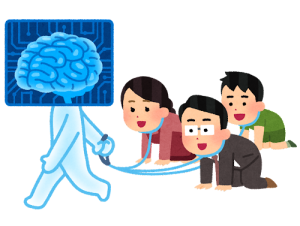今回は2023年に慶応大学経済学部で出題された日本の介護問題です。
ご存じの方も多いと思いますが、慶應(経済)の自由英作では、読解問題の記述から引用することを求められますが、今回の答案には含めてはいません。
Should the Japanese government take action to increase the number of caregivers in society? Why or why not?
2023 慶應大学経済学部
今回は日本の介護士を増やすことの是非ですが、高齢社会における日本では介護士のニーズは高まるばかりでこれに反対する意見はなかなか書けないと思います。
caregiver が「介護士」とわかれば、高齢化が進む日本での介護士の必要性、そして現状の「介護」における課題を書けばよいですね。比較的書きやすい問題かなと思いました。
もし反対意見をあげるとすれば、AIやロボットが介護士の仕事にとって代わるということですが、さすがに完全に人間の代わりが務まるはずもないので現実的ではないでしょうか。しかしながら、よくある切り口かなとは思ったので、解答例3にAIの話を入れてみました。もしよかったらご覧ください。
解答例
解答例1
The shortage of caregivers in Japan has become a serious issue due to the rapidly aging population. To address this problem, the Japanese government should take measures to attract more individuals to the caregiving profession. This could involve improving working conditions, increasing wages, and providing better training and support to caregivers. The government could also offer financial incentives or scholarships to encourage more people to pursue a career in caregiving. Increasing the number of caregivers would improve the quality of care services for the elderly, alleviate caregivers’ heavy workload, and create more employment opportunities in the caregiving industry. Therefore, it is essential for the government to take action to increase the number of caregivers to ensure the well-being of Japan’s aging population.(122words)
日本では、急速な高齢化に伴い、介護職の不足が深刻な問題になっている。この問題に対処するため、日本政府は、介護職に従事する人を増やすための対策を講じる必要がある。これには、労働条件の改善、賃金の引き上げ、介護士へのより良いトレーニングとサポートの提供などが含まれますまた、政府は、より多くの人が介護のキャリアを追求することを奨励するために、財政的なインセンティブや奨学金を提供することもできる。また、政府は、より多くの人が介護のキャリアを追求することを奨励するために、財政的なインセンティブや奨学金を提供することもできる。介護士の数が増えれば、高齢者向け介護サービスの質が向上し、介護士の重労働が軽減され、介護業界における雇用機会も増える。したがって、政府は、高齢化する日本の人々の幸福を確保するために、介護者の数を増やすための措置を講じることが不可欠である。
解答例2
It is not advisable to argue against the Japanese government taking action to increase the number of caregivers in society. The aging population in Japan has created a significant demand for care services, and the shortage of caregivers has resulted in low-quality care for the elderly. Failing to address this problem would lead to a decline in the quality of life for the elderly and negatively impact society as a whole. The government has a responsibility to ensure that its citizens receive the care they need, and this includes taking steps to attract more individuals to the caregiving profession. Without action, the problem will only worsen, and the burden on caregivers will become increasingly unsustainable. Therefore, the government should take action to increase the number of caregivers in society, improve the quality of care services, and support the well-being of its aging population.(143words)
日本政府が介護士の数を増やすために社会的な措置をとることに反対するのは得策ではない。日本では高齢化が進み、介護サービスに対する大きな需要が生じており、介護者の不足は高齢者に対する質の低いケアをもたらしている。この問題を解決しなければ、高齢者の生活の質の低下を招き、社会全体に悪影響を及ぼすことになる。政府は、国民が必要なケアを受けられるようにする責任があり、これには、介護職を増やすための対策も含まれる。このままでは、問題は悪化するばかりで、介護者の負担はますます大きくなってしまう。したがって、政府は、社会における介護者の数を増やし、介護サービスの質を向上させ、高齢化社会の幸福をサポートするために行動を起こすべきである。
解答例3(AIの観点から)
AI can play a significant role in providing support for caregivers and improving the quality of care services. AI technologies such as machine learning, natural language processing, and robotics can automate tasks such as patient monitoring, medication management, and household chores, freeing up time for caregivers to focus on more critical tasks. Additionally, AI can assist with diagnosis and treatment planning, providing faster and more accurate assessments, leading to more effective care for patients.
However, AI cannot replace human caregivers entirely. Caregiving involves emotional support, social interaction, and empathy, which are essential elements of providing high-quality care services. Human caregivers can offer personalized care, respond to the unique needs of patients, and develop relationships with them. Furthermore, human caregivers can act as a source of emotional support for patients and their families, which AI technology cannot provide.
Therefore, while AI can provide valuable support for caregivers and improve the quality of care services, it cannot replace the essential role of human caregivers in providing care for patients. A combination of AI technology and human caregivers can lead to a more effective and efficient caregiving system.(185words)
AIは、介護者をサポートし、介護サービスの質を向上させる上で重要な役割を果たすことができます。機械学習、自然言語処理、ロボット工学などのAI技術は、患者のモニタリング、投薬管理、家事などのタスクを自動化し、介護者がより重要なタスクに集中する時間を確保することができます。さらに、AIは診断や治療計画を支援し、より迅速で正確な評価を行うことで、患者さんへのより効果的なケアにつながります。
しかし、AIが人間の介護者を完全に置き換えることはできません。介護には、感情的なサポート、社会的な交流、共感が必要であり、これらは高品質の介護サービスを提供するために不可欠な要素です。人間の介護士は、患者さんに合わせたケアを提供し、患者さん固有のニーズに応え、患者さんとの関係を築くことができます。さらに、AIにはない、患者さんやそのご家族の心の支えとなることができます。
したがって、AIは介護士に貴重なサポートを提供し、介護サービスの質を向上させることができますが、患者さんへのケアを提供する人間の介護士の本質的な役割に取って代わることはできません。AIテクノロジーと人間の介護者の組み合わせは、より効果的で効率的な介護システムを導くことができます。
日本政府が介護者の数を増やすメリットとそのための課題
メリット:
- 高齢化社会において、介護者不足問題を解決することができる。
- 介護者の負担が軽減され、介護サービスの質が向上する。
- 介護業界が活性化し、雇用の創出につながる。
- 介護者が増えることで、介護に必要な時間や労力がより充実し、介護を必要とする人々がより自立した生活を送ることができるようになる。
今後の課題
- 新しい介護者の育成に時間がかかり、即座に問題が解決できない可能性がある。
- 介護者の増加に伴い、介護保険料が上昇する可能性がある。
- 介護者の数が増えたとしても、介護が必要な人々がますます増加しているため、需要と供給のバランスが難しい課題となる。
介護士が増えない理由
- 高齢化による需要の増加 日本の高齢化が進み、介護が必要な高齢者の数が増加しています。このため、介護士が必要とされる場面が増え、需要が高まっています。
- 労働環境の悪化 介護業界は、長時間労働や肉体的・精神的負担が大きいといった労働環境が問題視されており、介護士の離職率が高い傾向にあります。
- 待遇面の不備 介護士の給与が低く、社会的地位が低いことが、介護士の職業選択に影響を与えています。また、雇用形態の不安定さや福利厚生の不備も問題視されています。
- 就業条件の不適切 介護士には適切な教育や研修が必要ですが、その研修制度が不十分であることが問題視されています。また、介護士の労働環境や業務内容が適切でないと、介護士が仕事を継続することが難しくなります。
まとめ
保育士や介護士、あとは公立学校の教員など社会で必要とされる職業の待遇は悪く、本当にその仕事必要なの?っていう職業が厚待遇なことって、たくさんありますよね。世の中理不尽です😣
介護はすべての人が抱える問題、これからは個々人でしっかりと考えていく必要がある問題ですね。












コメント